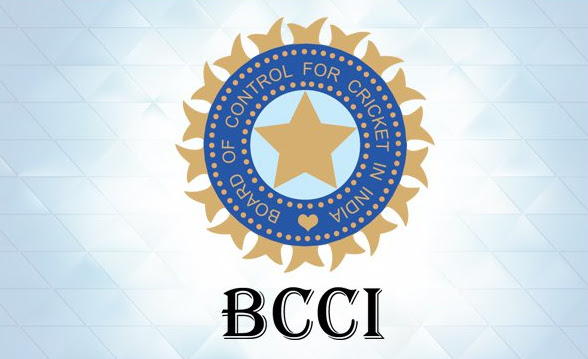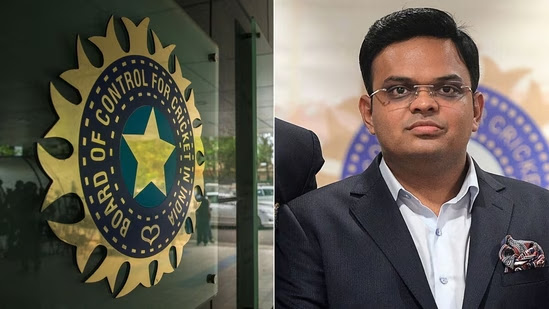What Will Take Place If India Refuses to Play Cricket Against Pakistan? Learning All About Fallout
Introduction
Cricket matches between India and Pakistan are known for being both incredibly exciting and valuable. Besides the game, it also involves politics, economics and strong emotions for many fans. Will it be possible for India to refrain from participating in cricket games against Pakistan as an official move? As geopolitical tensions rise and recent developments indicate a possible long-term freeze in Indo-Pak cricket relations, it's crucial to understand the broader implications. The blog investigates how a total boycott by India could impact Pakistan’s cricket team.
1. Financial Fallout: A Major Blow to PCB's Revenue Stream
Matches between India and Pakistan are the highlight of global cricket broadcasts. Millions around the globe follow these games and ads during them can cost a lot. During an India-Pakistan game, broadcasters are prepared to pay up to INR 50 lakh for a 10-second advertisement. The money generated by the event normally keeps boards like the PCB running for a long time.
Pakistan's revenue from ICC and ACC events is significantly bolstered by India's participation. Analysts say that India’s participation in ICC events means Pakistan earns around INR 165–220 crore every four years.
Should India choose not to play against Pakistan, TV networks may want a different contract or decide not to deal with the ACC during events like the Asia Cup.
Taking what has happened in the past into consideration: After the 2008 Mumbai attacks, India did not go ahead with a tour to Pakistan. The PCB Chairman reported the board lost nearly $40 million in revenue.
https://www.profitableratecpm.com/ehup75nz4?key=379f7225ff2ed2dfde70a7135efad0b0
Due to the decline in clashes, sponsors and brands that buy into these competitions will pull back.
Family cricket, the development of young players, women’s cricket teams and building projects in the game might be cut due to financial changes.
This budget shortfall would influence not only cricket at the international level, but domestic games, revenue from sponsorships and student programmes as well. In Pakistan, it might be years before regional academies and women’s cricket teams see full recovery.
2. The outcomes of military actions can impact politics and international relations.
Cricket has often served as a diplomatic tool between India and Pakistan, famously dubbed "cricket diplomacy." Declaring an official boycott would demonstrate that relations between India and Pakistan have reached a desperate point which might prompt a similar response from Pakistan.
The country might decide not to participate in any matches with India or in Indian-hosted tournaments.
The Asian Cricket Council (ACC) could fracture, with Bangladesh, Sri Lanka, and other nations caught in the middle.
Pakistan could push for international cricket organisations to remove India as the host of tournaments.
Pressure mounts from various cricket boards for both teams to settle the matter so that everyone in the sport can enjoy it fully.
A further worsening of diplomatic relations could mean that sports teams will be less able to compete in hockey, wrestling and other sports.
This issue would influence both the ties between the two countries and how cricket is managed around the world. Cricket was once used to bring countries together; however, it now falls victim to political stalemates.
3. Disruption to Tournament Scheduling and Bilateral Series
The scheduling of international cricket tournaments relies on the certainty of participation by top-tier teams. The Indian boycott of Pakistan could cause problems for the rest of the world.
The ICC has set a rule for all India-Pakistan games in its tournament cycle for 2024–27 and the 2025 Champions Trophy to be played on neutral venues.
The future of the 2025 Asia Cup is unclear given India’s stance against a Pakistani heading the ACC.
Plans for bilateral series with India, the last of which was held in 2012, would not be considered ever again, meaning players on both teams would lose valuable cricket opportunities and fans would miss out on the excitement.
Changes to the ICC tournaments might be required to steer clear of direct encounters between India and Pakistan.
People in countries that host international cricket such as the UAE, Sri Lanka and Oman, are afforded many matches, though the lack of strong home support can make the overall event less exciting.
If India is not involved in shared tournaments, they may lose some of their importance and attractiveness on a global scale. This would also disrupt cricket's growth in emerging markets like the U.S. and the Middle East, where India-Pakistan games are major fan pullers.
4. The amount of people and media focusing on football has decreased greatly.
Matches between India and Pakistan that do not include India would likely see much fewer people watching and interacting as fans.
Thirty-five million people watched the India-Pakistan game in the 2023 World Cup at the same time, making it a huge success.
If these prestigious games did not take place, the returns for broadcasters, digital players and sponsors might drop as well.
Pakistani cricketers from a younger generation could miss out on opportunities to face international teams on a big stage.
Sports tourism would suffer because of this. The games attract fans from India and Pakistan, making it easier for local hotels and companies to boost sales.
Merchandise earnings which rise during Indo-Pak matches, would go down as well.
Fans and enthusiastic discussions on the internet about Indo-Pak matches are unrivalled, so their absence might make cricket less appealing worldwide. Without YouTube, TikTok and Twitter, both audiences and content creators in both countries would be affected.
5. The responses from ICC, PCB and BCCI
ICC: Epicentre has adjusted by organising Indo-Pak games in grounds away from their home countries and could be pressured to introduce stricter guidelines if similar actions happen again. The topic of impartiality and how well cricket is managed globally would become more heated.
BCCI: Refuses to have bilateral cricket with Pakistan as directed by political officials. It has also avoided taking part in any ACC events that Pakistan has arranged. Because of its large wealth, the decisions made by the BCCI impact the world of international cricket.
PCB is loudly disagreeing with India, threatening to encourage other teams to boycott and insisting the ICC and ACC give it a fair chance. PCB could end up isolating itself if it provokes big boards such as the BCCI and ECB.
ACC: Risks could be very serious or could cause the CENTO alliance to split if India departs. The $170 million deal with broadcasters is based on India’s participation. Because smaller cricketing nations are often involved in political issues, it could begin to divide Asian cricket.
At the global level, the organisation of cricket may lose credibility. Should politics keep standing in the way of sport, the ICC may have to strengthen its legal actions to ensure everyone participates and the match resumes.
6. Changes to the overall character and future of the sport
One of cricket's unique elements is its ability to bring nations together even amidst political hostility. The absence of India-Pakistan games is damaging to that area.
Since young fans in both places may not be lucky enough to watch an India-Pakistan match live, cricket’s emotional connexion could decrease.
This means players no longer have the chance to explore how they respond in challenging situations that create their storeys.
For those who love cricket, it means a classic clash is being replaced by something different, just as once before millions enjoyed the epic rivalry together on TV.
While Americans may focus more on Australian-England or India-Australian rivalries because of the Indo-Pak matches’ end, they are not as important as those from the Indo-Pak series.
7. Sports play a significant role in global societies.
The cricket series between India and Pakistan is setting a hazardous example for the future.
Field hockey, kabaddi and esports may experience the same kind of division.
It makes the spirit of the Olympics and international sports weaker.
In certain sports, choosing political allies is valued above winning games and pleasing spectators.
The international community of sports bodies might develop new rules to respond to political pressure. If politics regularly blocks competition, global sportsmanship and teamwork may be negatively affected.
In Conclusion: Something both teams can lose.
While both sides might think a boycott is justified, it greatly affects the entire game. A full-fledged boycott by India would cripple Pakistan's cricket economy, reduce the quality and appeal of global tournaments, and rob fans of one of the sport's most cherished rivalries.
Playing cricket is fun because of the healthy rivalry and the sense of belonging. An ongoing delay damages the integrity, important members and legions of fans of this sport. Diplomatic efforts should now become more important than actions of hostility. Using neutral grounds, mediators and both techniques may help, but rebuilding Indo-Pak cricket fully can happen only if the teams speak honestly.
What’s Next?
If the peace talks are not successful, various cricketing bodies could start using neutral places for matches and modify how games are arranged in tournaments. The main concern is, can cricket be cut off from politics in South Asian countries? Before that, the competition between India and Pakistan will keep flourishing due to global politics, memories of the past and possible missed opportunities.
It is obvious that cricket without India playing Pakistan would be incomplete.










No comments:
Post a Comment